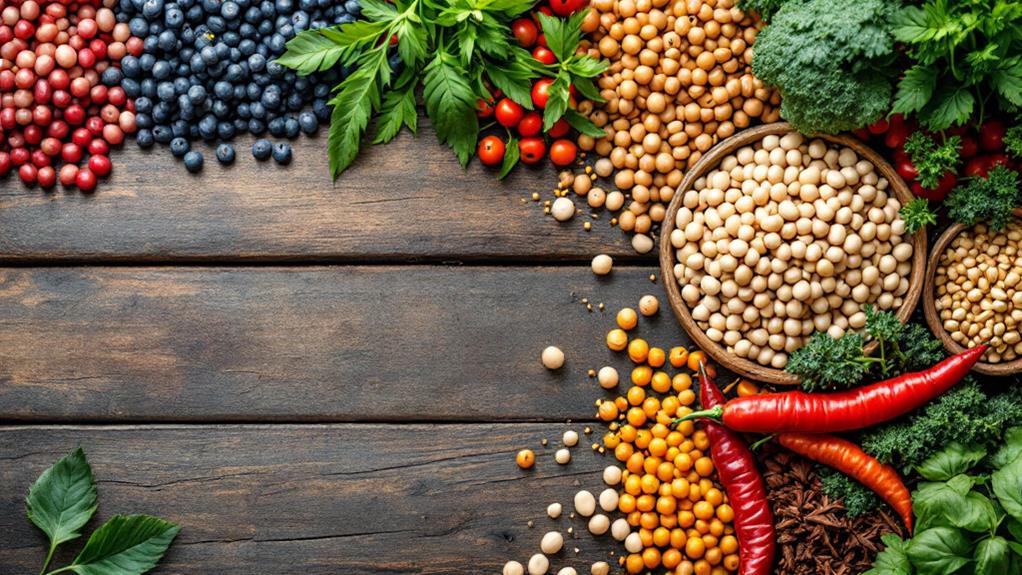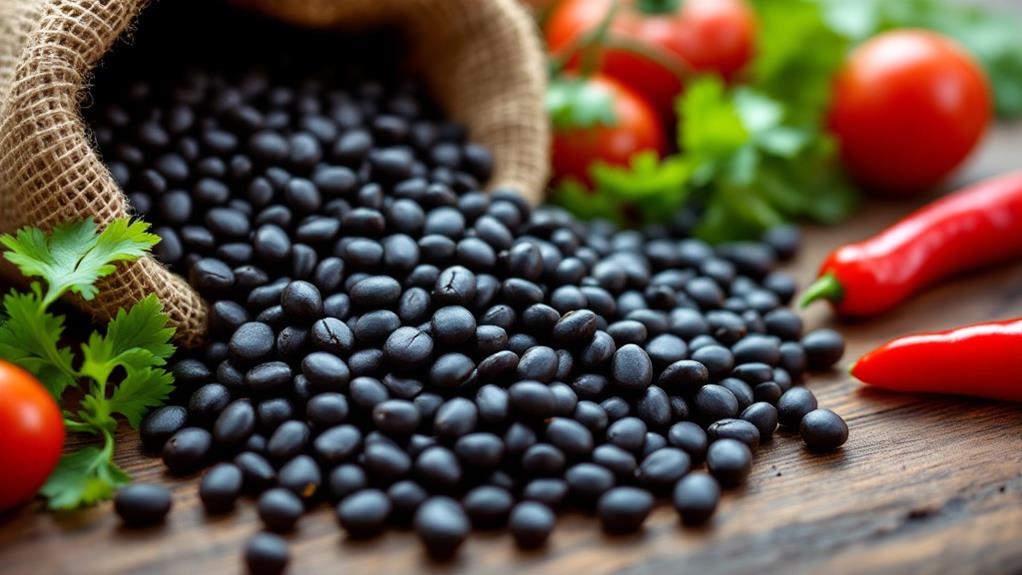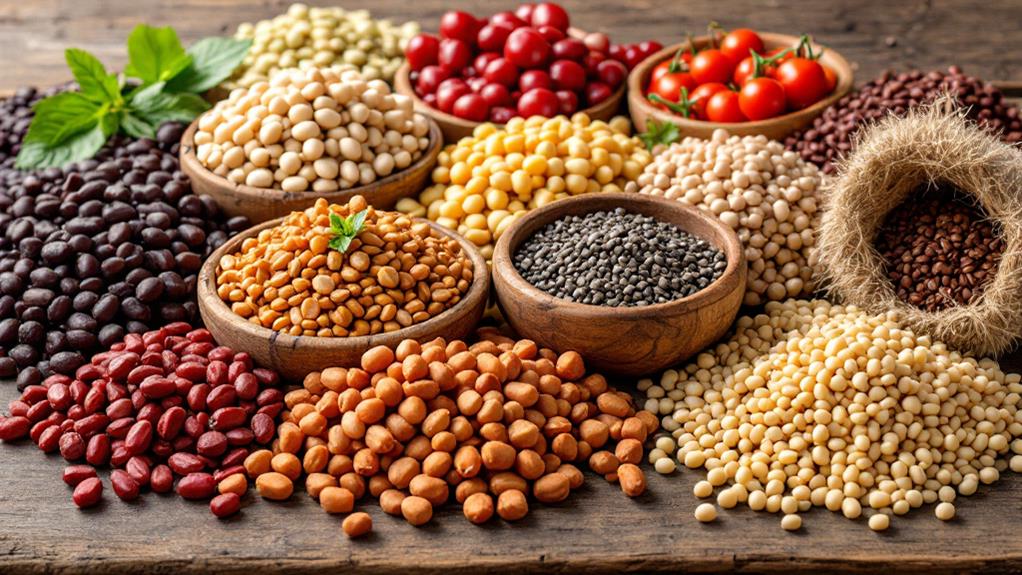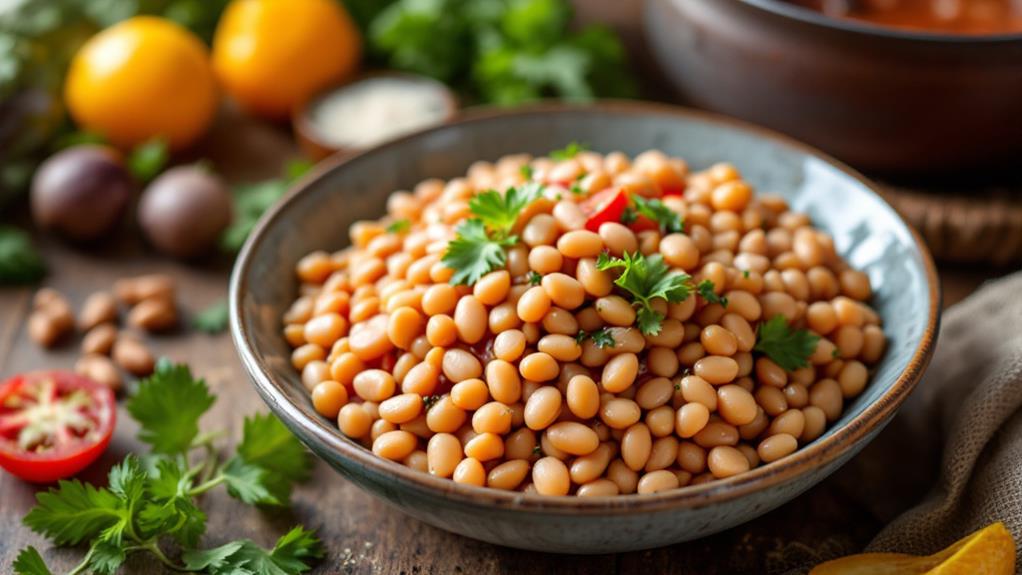A Complete Guide to the Types and Health Benefits of Beans
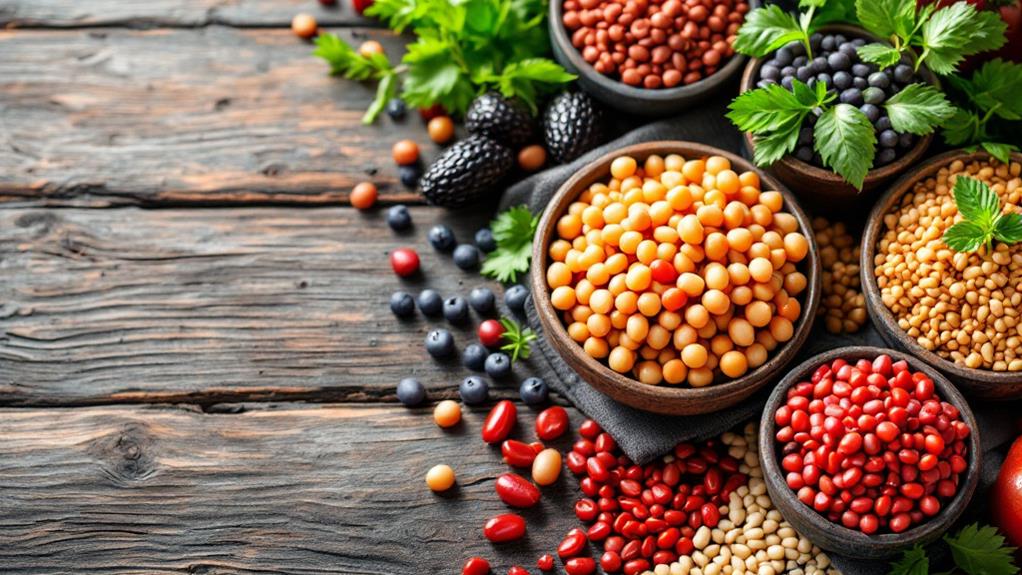
Beans are a nutritious and versatile supplement to your diet. With varieties like black, kidney, navy, and garbanzo, each offers unique benefits. Black beans provide protein and help manage blood sugar, while red kidney beans are rich in folate, crucial for fetal development. Navy beans support heart health with their high fiber content. Beans are excellent for vegetarians and vegans, offering a cholesterol-free source of protein and antioxidants, which fight oxidative stress. Integrate them into meals to reduce cholesterol and stabilize blood sugar. Exploring further, you'll uncover the full scope of how beans can improve your lifestyle.
Understanding Bean Varieties
When exploring the world of beans, you'll find they're an incredibly diverse group classified under legumes, offering a variety of popular types like lima, black, kidney, navy, pinto, and garbanzo beans. Each type of bean brings its own unique health benefits and nutritional profile, making them a versatile choice for your diet. For instance, black beans are a powerhouse of nutrition, providing you with a substantial amount of protein—about 15.2 grams per cup. They're also known for their lower glycemic index, which means they help manage blood sugar levels effectively.
Red kidney beans stand out for their high folate content, delivering around 58% of your daily value per cup. This makes them particularly beneficial for pregnant individuals, aiding in fetal development. Navy beans, on the other hand, are rich in soluble fiber, which plays a vital role in lowering cholesterol levels, consequently supporting heart health. As you incorporate these beans into your meals, you'll also appreciate their ability to add texture and flavor, all while enhancing your intake of important nutrients. By understanding these types, you can choose the right beans to complement your health goals.
Nutritional Components of Beans
Beans are nutritional powerhouses packed with components that support general health. They offer a remarkable blend of dietary fiber, protein, fundamental vitamins, and minerals, making them a staple for a balanced diet. Here's what you'll find in beans:
- Dietary Fiber: With about 7-9 grams per cup, beans help promote digestive health and keep you feeling full longer. This fiber content also aids in managing weight and improving gut health.
- Protein: Beans provide 15-25% protein content per serving, making them an excellent protein source, especially for vegetarians and vegans. They help build and repair tissues, ensuring your body functions effectively.
- Fundamental Vitamins and Minerals: Beans are rich in folate and iron. Folate is significant for red blood cell production, while iron is key for transporting oxygen throughout your body, supporting general well-being.
- Heart Health: Being low in fat, sodium, and completely cholesterol-free, beans contribute to heart health. They help reduce the risk of cardiovascular diseases while their antioxidants, like polyphenols, combat oxidative stress and may lower the risk of chronic conditions, including certain cancers.
Incorporating beans into your diet is a smart move for maintaining health and well-being.
Health Benefits of Beans
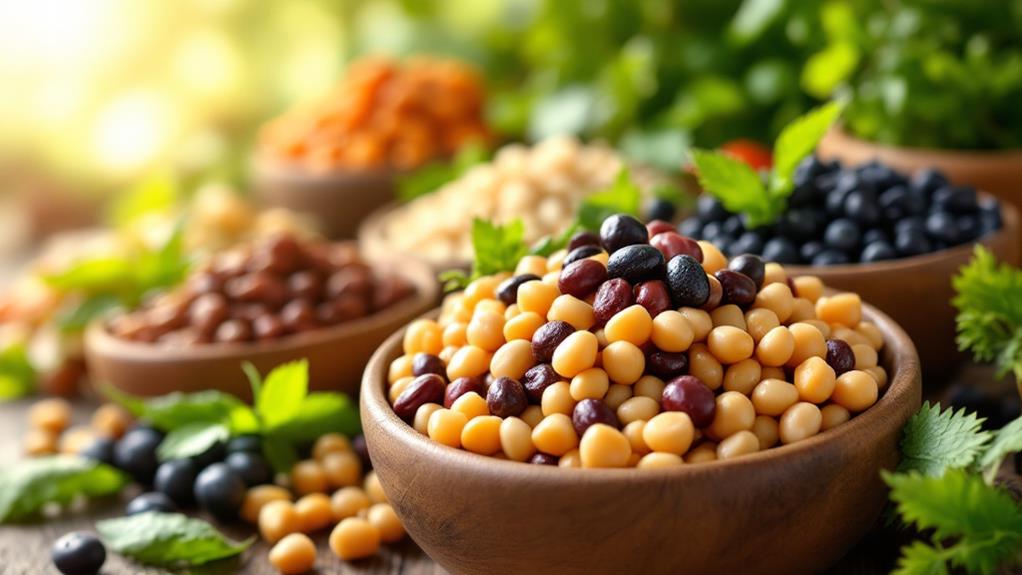
Incorporating beans into your meals can greatly improve your health. Their high fiber content plays an important role in reducing cholesterol levels, which considerably lowers the risk of heart disease. By consuming beans regularly, you're taking a proactive step towards protecting your heart. With one cup of cooked black beans providing 15 grams of fiber, they support not only heart health but also aid digestion, making them a vital part of a balanced diet.
The health benefits of beans extend beyond heart health. Due to their low glycemic index, beans can stabilize blood sugar levels, making them especially beneficial for individuals managing type 2 diabetes. This means you can enjoy beans without worrying about sudden spikes in blood sugar, helping you maintain consistent energy levels throughout the day.
Beans are also rich in antioxidants, such as polyphenols, which combat free radicals in the body. This can potentially inhibit cancer cell growth, particularly in colorectal cancer, offering another layer of health protection. Additionally, the combination of high protein and fiber makes beans an excellent choice for weight management, as they increase satiety and help you feel full longer, reducing the likelihood of overeating.
Incorporating Beans Into Diet
Given the myriad health benefits beans offer, it's wise to contemplate how you can add them to your diet. Incorporating beans into your meals is simple and rewarding. Start by replacing meat with beans in soups, stews, and casseroles. This switch improves both nutrition and flavor, while cutting down on fat intake. For those following vegetarian diets, beans are an excellent protein source. Mixing them with grains like rice or quinoa creates complete proteins, ideal for balanced meal options.
To ease into incorporating beans, consider these steps:
- Gradually increase your intake: Begin with small portions and drink plenty of water to minimize digestive discomfort.
- Experiment with different meal options: Try chilled bean salads as a main dish or side, perfect for quick, nutritious meals.
- Investigate multiple bean types and seasonings: This helps you identify personal preferences and maintain variety in your diet.
- Utilize beans in different cuisines: Beans adapt well to many dishes, so discover cultural recipes for inspiration.
With thoughtful incorporation, beans can become a staple in your diet, offering both health benefits and versatility in meal planning.
Risks and Considerations
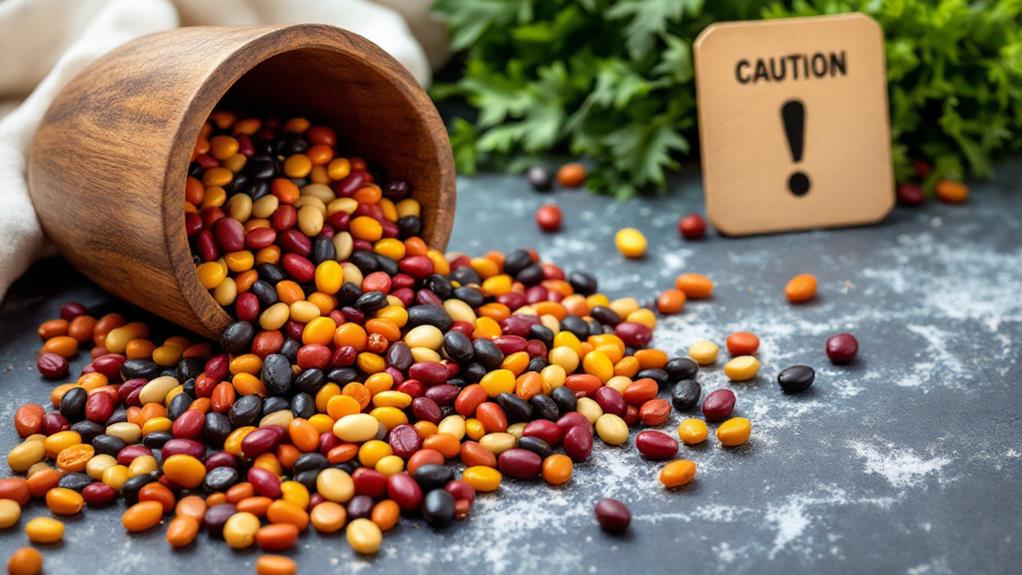
Understanding potential risks is fundamental when adding beans to your diet. Some people might experience digestive discomfort, like gas and bloating, due to oligosaccharides found in beans. To minimize these effects, gradually introduce beans into your meals. Proper cooking is critical since raw or undercooked beans contain lectins, which can be toxic. Always boil beans for at least 10 minutes to eliminate this risk.
Allergies are another consideration, particularly with peanuts and soybeans. If you're allergic, it's imperative to approach these types of beans with caution. Canned beans often come with added sugars and salts, so checking labels is significant. Opt for low-sodium versions whenever possible to avoid unnecessary intake of added sugars and salts.
While beans are loaded with nutrients, eating them in moderation is key. Overconsumption might lead to nutrient imbalances or further digestive issues. Enjoying beans in balanced portions helps you reap their benefits while minimizing potential downsides. Remember, maintaining a varied diet is crucial for comprehensive health. By being mindful of these risks and considerations, you can enjoy the advantages beans offer without unnecessary discomfort or health concerns.

